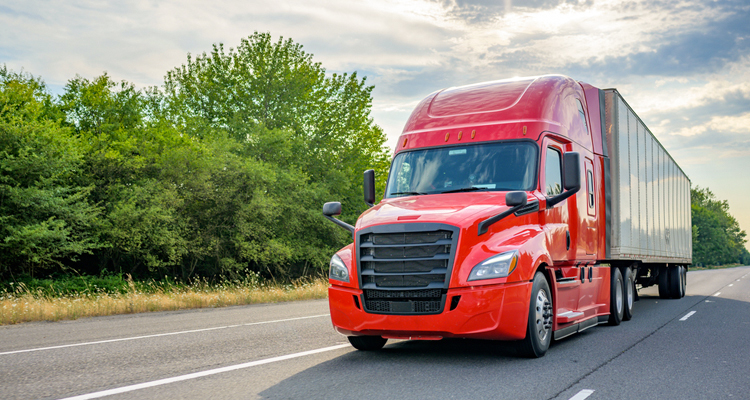Frequently Asked Questions About Truck Driving
January 6, 2022

While almost everyone can drive a car or a motorbike, commercial vehicle driving is only for those with the expertise and skills in driving heavy vehicles. If you do not have a firm grip on handling large vehicles on the road, then consider choosing an alternative career.
Evidently, passing a driving test for any small vehicle is no big deal. But things get trickier if you want to become a truck driver for commercial purposes. Given the complications of the situation, aspiring truck drivers in Canada often feel overwhelmed by the mixture of right and wrong information the internet throws at them.
To simplify the issue, and help you reach a better decision, this blog will answer a few common questions about truck driving, training, commercial driving schools, etc.
As the name suggests, a commercial vehicle is an umbrella term for all heavy vehicles such as buses, lorries, trucks, trailers etc. On the other hand, truck driving is confined to the various types of trucks.
Yes, because these commercial driving schools will not only train you on how to handle a truck but also equip you with the necessary laws and regulations you must follow to be a truck driver in Canada.
Therefore, it is essential that you undergo such a program.
Undoubtedly, this particular branch of the transportation industry is booming at an incredibly fast pace. Numerous companies are on the hunt for an ideal truck driving candidate, to secure the best candidate for themselves, these companies usually pay truck drivers market-competitive salaries.
Hence, truck driving is indeed a well-paying profession. There are also numerous other benefits truck drivers enjoy.
While the pay rates for different types of truck drivers will vary from company to company, tanker drivers are usually the most well-paid truck drivers.
CDL, which stands for Commercial Driver’s Licence, is an obligatory requirement to become a truck driver in Canada. Clearly, you can not use an ordinary driver’s licence to drive a snow plough or a tanker, can you? Besides a CDL, there are other rules and regulations that Canada’s National Safety Code requires a truck driver and other heavy vehicle drivers to follow.
Obtaining a CDL is not as easy as getting a driver’s licence. Before applying for a CDL, there are some minimum requirements you must fulfil. These include:
As much as we hate to tell you this truth, we believe we must do so. Honestly, some types of medical conditions may lead to the denial of a CDL. These include certain types of:
To save yourself the heartbreak of being denied the chance of becoming a professional truck driver at the end of the whole process, we suggest you disclose such conditions at the start.
After successfully passing the aforementioned written test, you will receive a learner’s permit. You can start practising with it, and also enrol in a renowned driving school like Big Rig to become a full-fledged truck driver. Whenever you feel ready, the examiner will book a test for you. Once you pass the test, you will get your CDL license.
Without a doubt, they can. Undeniably, women have consistently displayed their courage and potential to stand alongside men in various industries. The transportation industry is no exception to this reality. Although traditionally, only men took up such positions, the industry makes no gender-based bias. Hence women are welcome in the industry.
Different Canadian states issue licenses depending upon the type of vehicle you will be driving. In Surrey, BC, the classes are as follows:
Big Rig is an acknowledged and celebrated proud carrier of the status of the most reliable driving school in BC. Our highly trained and equipped driving instructors make the learning process easy and enjoyable for everyone. So leave your anxiety at home and happily take the steps towards your dream trucking career. Contact us today to learn more.